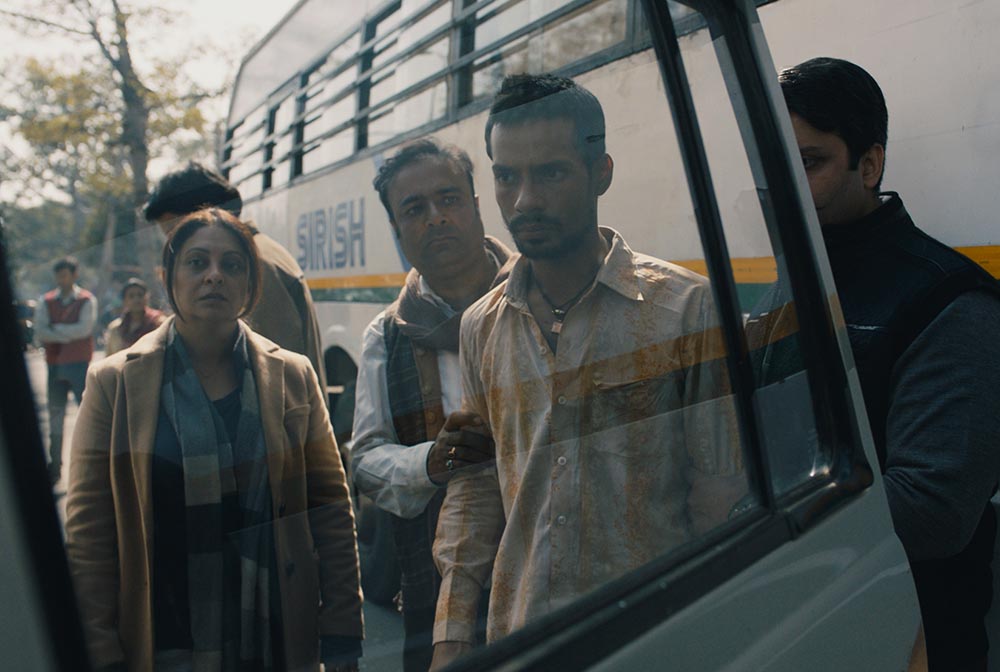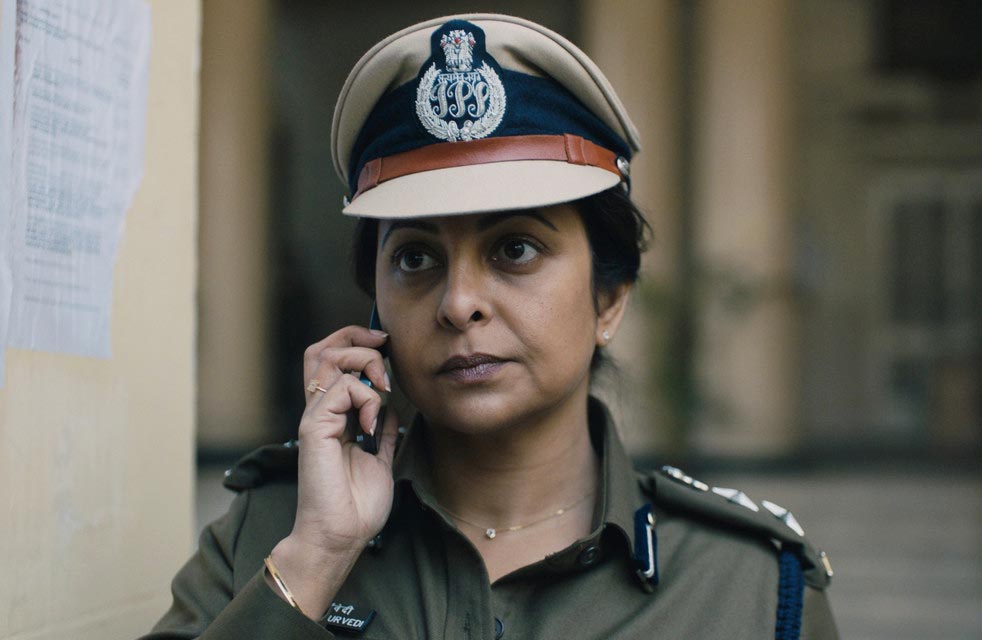“Delhi Crime” is a 7-episode webseries on Netflix which covers the gruesome incident which had shocked the city of Delhi, the 2012 ‘Nirbhaya Gang Rape‘ case. Written and directed by Richie Mehta, this series is not for the light-hearted, as there are scenes which are difficult to watch emotionally, especially when events are described and shown in such a horrific manner that it makes us the question how one human could do this to another. Mehta has not even shown the incident but has managed to portray the emotion so well that it hits the spot among the audience. However, Mehta’s series is not a fragment of the imagination, but a reflection of reality, the reality of the world that we live in.
The series is a complex revelation of how Delhi got its reputation for being the most dangerous city for women; the city is an organism that functions collectively, and the story is not about one woman, but about the entire organism as a whole. In the hustle and bustle of the city, some screams go unheard, but this cry in 2012 silenced Delhi for better or for worse.
The series primarily focuses on the aftermath of the 2012 Delhi rape case; the perspective is not that of the victim but rather the gatekeeper of the justice system—the police enforcement. The series reflects on how the investigation in the case proceeded, and how affected these police enforcements as men and women of the law were.
Series involving crimes tend to dehumanize the police to a mere creature of the law, which may not even invest themselves in the case. But, “Delhi Crime” is a fresh perspective that gives it a unique form of narration. It is evident that the Delhi Police were very prudent in conducting the investigation and following the culprits within a period of a few days of the incident. However, there are certain scenes where it is evident certain scenes are exaggerated to protect the image of police Mehta has tried to portray: “The gatekeepers of the justice system!”

Shefali Shah, who plays the role of Inspector Vartika Chaturvedi, DCP-South, has shown what the intersection of being a woman and an officer means while investigating rape cases. She is quick to realize the case is not like the normal cases which stack up in the police station, but rather one which needs quick attention; she assembles the team to find the four culprits of the crime. Her daughter is enraged with how the city has failed women yet again. Regardless of the same, Vartika persists all pressures and daunting questions she has to face and find answers to.
This series is executed in a brilliant manner, with its perspectives unique and its thoughts beyond imagination. Even though initially it seems like “Delhi Crime” is an attempt to capitalize on crime, it comes out as a voice that silenced Delhi. The series is commendable for its writing, which is sensitive but impactful. But, there are certain questions this series brings to the fore, such as: “Was this incident avoidable with a better policing system?” This remains unanswered; and perhaps the answer exists, but is too difficult to listen to. As the title suggests, “Delhi Crimes” is an answer taken aback by the city itself!
I highly recommend this series to understand the intersection between crime and investigation and the humanized process the police enforcements go through. Maybe the hustle and bustle of the city unite when a scream reaches our ears, and “Delhi Crime” is one such scream we ought to listen to.


